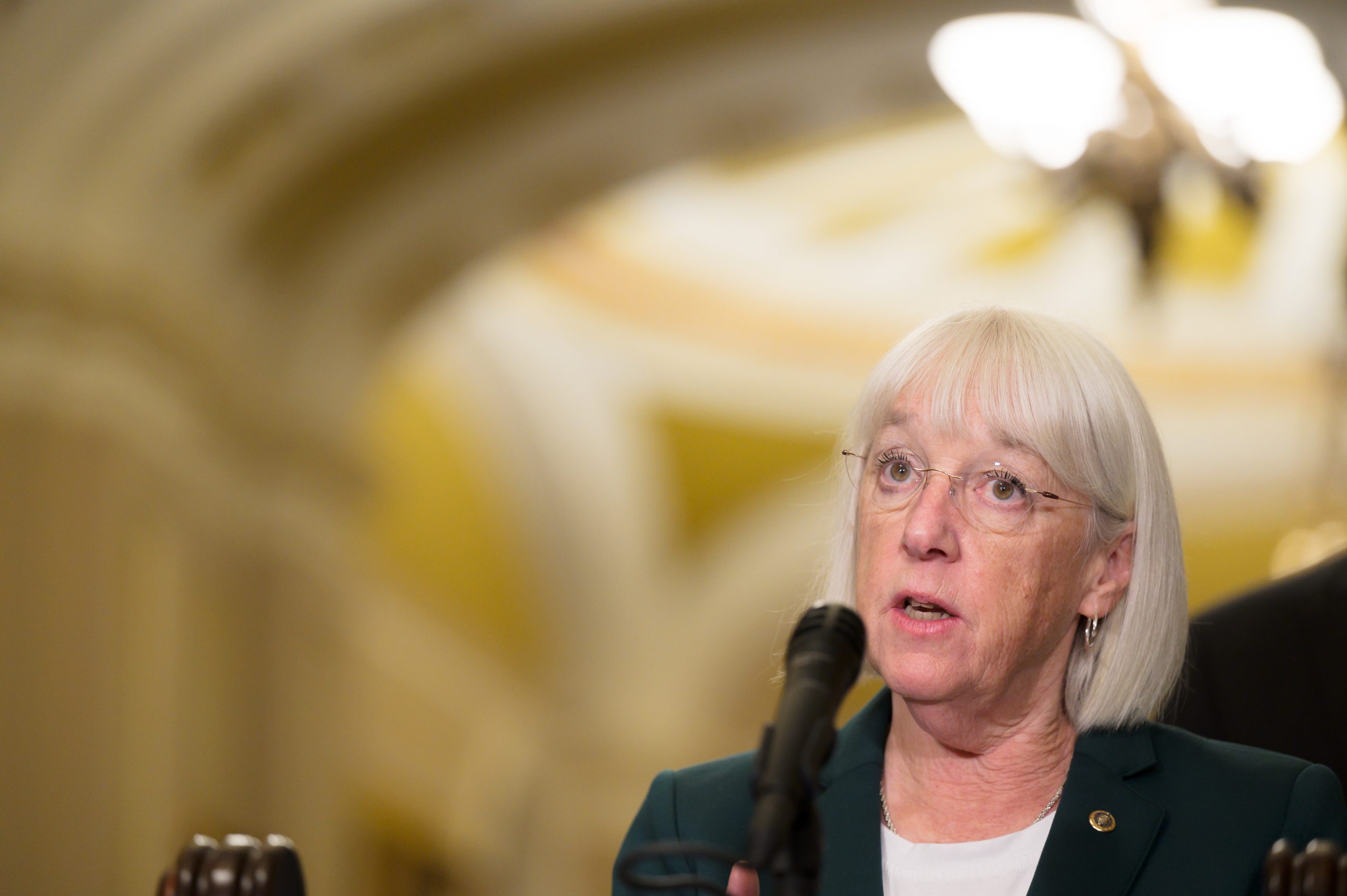Final NDAA includes Senator Murray’s legislation to help military health system retain skilled nurses and address acute staffing shortages at JBLM’s Madigan Army Medical Center, as well as Murray’s bill to improve financial literacy training for servicemembers
Washington, D.C.– Today, U.S. Senator Patty Murray (D-WA), a senior member and former Chair of the Senate Veterans’ Affairs Committee, released the following statement on her vote for the National Defense Authorization Act for Fiscal Year 2024 (NDAA). The legislation passed the Senate today by a vote of 85-14, passed the House earlier this week, and now heads to President Biden’s desk to be signed into law.
Senator Murray joined Senator Baldwin in introducing an amendment to the NDAA to remove partisan language House Republicans added to strip away servicemembers’ ability to provide their transgender children with medically necessary, gender-affirming health care.
“I am deeply disappointed that Speaker Johnson chose to inject partisan politics into our annual defense bill, upending a decades-long bipartisan tradition to unilaterally deny health care to people who need it—and undermining servicemembers’ ability to make the best health care decisions for their children. Attacking kids for who they are and ripping away evidence-based health care from people who need it is wrong—and it’s incredibly troubling that Republicans continue trying to find ways to single out and target transgender kids to score cheap political points.
“It’s important to remember this legislation was the result of tough negotiations with Republicans who were pushing to restrict people’s freedom to make their own medical decisions in all kinds of ways—and Democrats fought hard to make sure the final NDAA excluded all sorts of harmful riders that would have curtailed the ability of women in uniform to make their own health care decisions, including traveling for lifesaving abortion care. Importantly, this bill will improve access to contraception for servicemembers and military families by requiring TRICARE to fully cover birth control, with no out-of-pocket costs—this really matters.
“Ultimately, I voted for this bill in large part because it secures badly-needed pay raises for servicemembers in Washington state and throughout the country—especially junior enlisted servicemembers who face high rates of food insecurity and too often can’t make ends meet, despite bravely serving our nation in uniform. This legislation also takes steps to improve military health care, child care, and housing—critical issues for military families’ quality of life in Washington state.
“I am proud that the NDAA includes my legislation to help military medical facilities retain skilled nurses and address the nursing staffing shortage—this is especially important for Madigan Army Medical Center at JBLM, which has one of the highest reported nursing shortages in the country. Additionally, my bipartisan SMART Save Act will help ensure that servicemembers and their families receive comprehensive, worthwhile financial literacy training that sets them up for success.”
The legislation included Senator Murray’s Retain Educated Workers and Registered Nurses Developing (REWARD) Experience Act, which will help the military health care system retain experienced nurses by removing unnecessary hiring requirements that incentivize nurses in the system to leave for the private health care sector. Specifically, the legislation will empower hiring officials to promote qualified and skilled nurses already working in the military health care system, allowing them to receive recognition for their service and the expertise gained in their previous position. More information is HERE.
The nationwide nursing shortage across the U.S. greatly impacts the military health care system and the ability of servicemembers and their families to receive timely and high-quality care, something Defense Health Agency Director Lieutenant General Telita Crosland has publicly acknowledged. Over 85 percent of DoD facilities reported nursing shortages during the COVID-19 pandemic and in January 2023, 80 percent of civilian vacancies in the Defense Health Agency were health care personnel positions. Madigan Army Medical Center on Joint Base Lewis-McChord in Tacoma had the largest percentage of vacant positions—38 percent, or 1,615 personnel—of all the Military Treatment Facilities sampled. The Bureau of Labor Statistics projects that more than 275,000 additional nurses will be needed across the U.S. between 2020 to 2030.
The legislation also included Senator Murray’s Servicemembers Are Ready To (SMART) Save Act, which will make important and overdue updates to DoD’s mandatory financial literacy training. These changes include: expanding the training to reach servicemembers of more ranks as well as military spouses, increasing standardization across all branches of the military, boosting in-person instruction, and bringing the training up to speed with evolving best practices. The legislation will help ensure servicemembers and their spouses receive comprehensive financial literacy training that will help them succeed in the civilian world. More information on the legislation is HERE.
According to the Military Family Advisory Network (MFAN)’s most recent Military Family Support Programming Survey, over 80 percent of respondents said their finances were a source of stress, and more than half of military and veteran families reported experiencing barriers to saving over the past two years. Over 22 percent of currently serving military families and 38 percent of veteran families have less than $500 or no emergency savings at all, according to the most recent survey.
The NDAA also included a badly-needed pay raise for all U.S. troops—with base pay going up by 4.5 percent for all servicemembers, and junior enlisted troops receiving an additional 10 boost to their base pay, for a total pay raise of 14.5 percent—critical to reducing food insecurity among our troops and boosting quality of life for military families.
###


